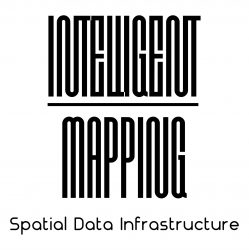Our solutions combine best of industry solutions creating a value chain that will rapidly create digital mapping infrastructure, addressing systems and infrastructure assets inventory on national scale.
Traditional Digitisation
We use this solution to map all buildings and parcels fulfilling the requirements of the UN Habitat Report Fir For Purpose report of 2016. We then assign the buildings and parcels consistent unique global addresses usable in Google Maps enabling population registration and powering postal services and commercial logistics. We are developing solutions for fast digitisation and the use of AI in detecting change and upating maps.
Government, International Development Agency or NGO as Potential Customers
Let us work with you to create a solution for your country. We develop proposals, create solutions from A to Z. We write the proposal and work with you to secure funding. We create the solution and deliver the final products for you and then help you integrate the outputs into products and services for your organisation.
Image processing
We use this solutions to map land classes and use, enabling counties to inventory their natural environments and update their national maps to enable planning and conversation activities.
We provide the solutions for developing countries to get the Spatial Data Infrastructure they need to build their economies
All the Mapping Tools a Government Need to Succeed
Map are used by everybody. The government needs up to date maps to deal with a running their basic admin, resource management, and home security. Modern mapping improve efficiency and is essential for better disaster response.
Businesses on the other hand require access to up-to-date maps so that they can target their investments in a strategic way. Logistics, fleet management, and operations are almost fully dependent on maps. Sales and Marketing functions targeting are very dependent on maps.
Citizens consume mapping data almost daily, from checking traffic to finding businesses and finding accurate directions and locations. Google reports that 45% of all searches involves searches that requires information about place. Mapping data internet traffic growth is growing 7 times faster than classic web.
A positive economic impact of increased use of map data through making data free to use is registered in advanced economies. In the case of developing countries, the impact will be quite significant. The world bank reports that GeoServices account for 0.2% of Global Gross Domestic product while the airline industry accounts for nearly 0.4%.

